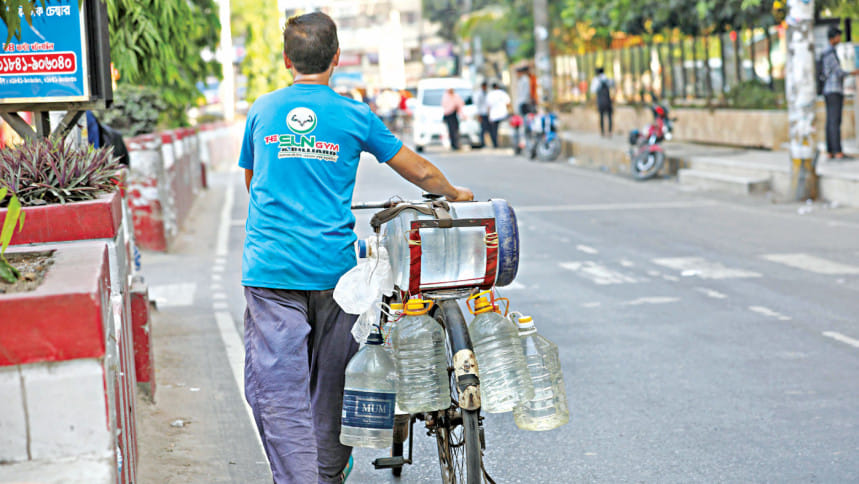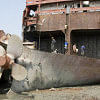Drinking water crisis grips Sitakunda

The drinking water crisis in Sitakunda has been worsening as over 7,000 tube wells have become dysfunctional due to the fall of the groundwater layer amid scorching heat.
The situation has been ongoing for nearly 25 days, causing untold sufferings to women and children. Locals said they are now forced to drink and use arsenic-contaminated and unclean water, leading to health problems.
Sitakunda accommodates almost 300 small and large industries, including iron factories and ship-breaking yards. These factories reportedly pump groundwater with high-power submersible pumps to meet their daily necessities for production.
Locals allege that due to the industries, the groundwater level goes down during every dry season, causing a tube-well water crisis, putting local life in immense trouble.
Sitakunda accommodates almost 300 small and large industries, including iron factories and ship-breaking yards. These factories reportedly pump groundwater with high-power submersible pumps to meet their daily necessities for production.
The Department of Public Health Engineering (DPHE) Sitakunda office has reported that a total of 5,000 tube wells installed by the DPHE have become dysfunctional, forcing people to collect drinking water from other sources.
Additionally, more than 5,000 tube wells set up privately have also become out of order.
Officials of DPHE said they can do nothing but wait for the rain to relieve the situation.
The crisis is affecting Kumira, Banshbaria, Muradpur, Syed Para, and the municipality area, as well as 32 coastal colonies of fishermen communities and seven indigenous villages. People are collecting water from nearby canals and ponds, but this water is often polluted, causing physical problems for children and women.
Banker Nazmul Alam, a landlord in Sitakunda Bazar area, said his tenants have reported water crises for the last several years, and this season has brought more woes as there is scanty rain, and the water level is going down every year due to the increase in demand.
The situation has led to diarrhoea and other water-borne diseases in fisher communities.
Admitting the crisis, Sitakunda DPHE office's Deputy Sub Engineer Md Rasheduzzaman said there is no water in around 5,000 tube wells in different parts of the upazila.
"The problem will ease if torrential rain starts in the locality, otherwise there is no solution," he added.
Upazila Nirbahi Officer of Sitakunda Md Shahadat Hossain acknowledged the situation and said they are trying to tackle it by advising people to use nearby ponds and similar water sources.
When asked about the allegation of rampant use of groundwater by the industries in Sitakunda, the UNO said they asked the industries to use reserved water by installing ponds and are demotivating business organisations from using groundwater.
He also claimed that some factories have sought permission to use spring water from hills, but it was declined.

 For all latest news, follow The Daily Star's Google News channel.
For all latest news, follow The Daily Star's Google News channel. 








Comments